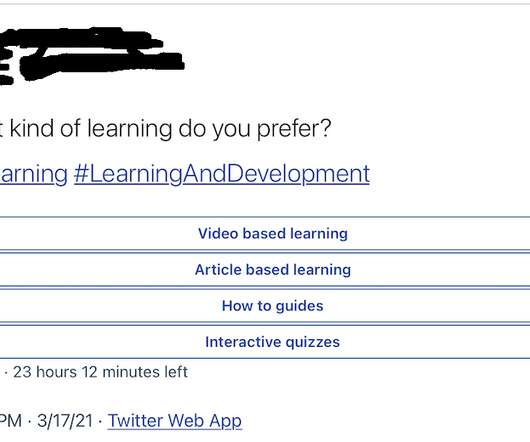Simulations versus games
Clark Quinn
AUGUST 9, 2017
At the recent Realities 360 conference, I saw some confusion about the difference between a simulation and a game. Simulations. As I’ve mentioned, simulations are models of the world. You can also think about simulations as being in a ‘state’ (set of values in variables), and move to others by rules.




































Let's personalize your content